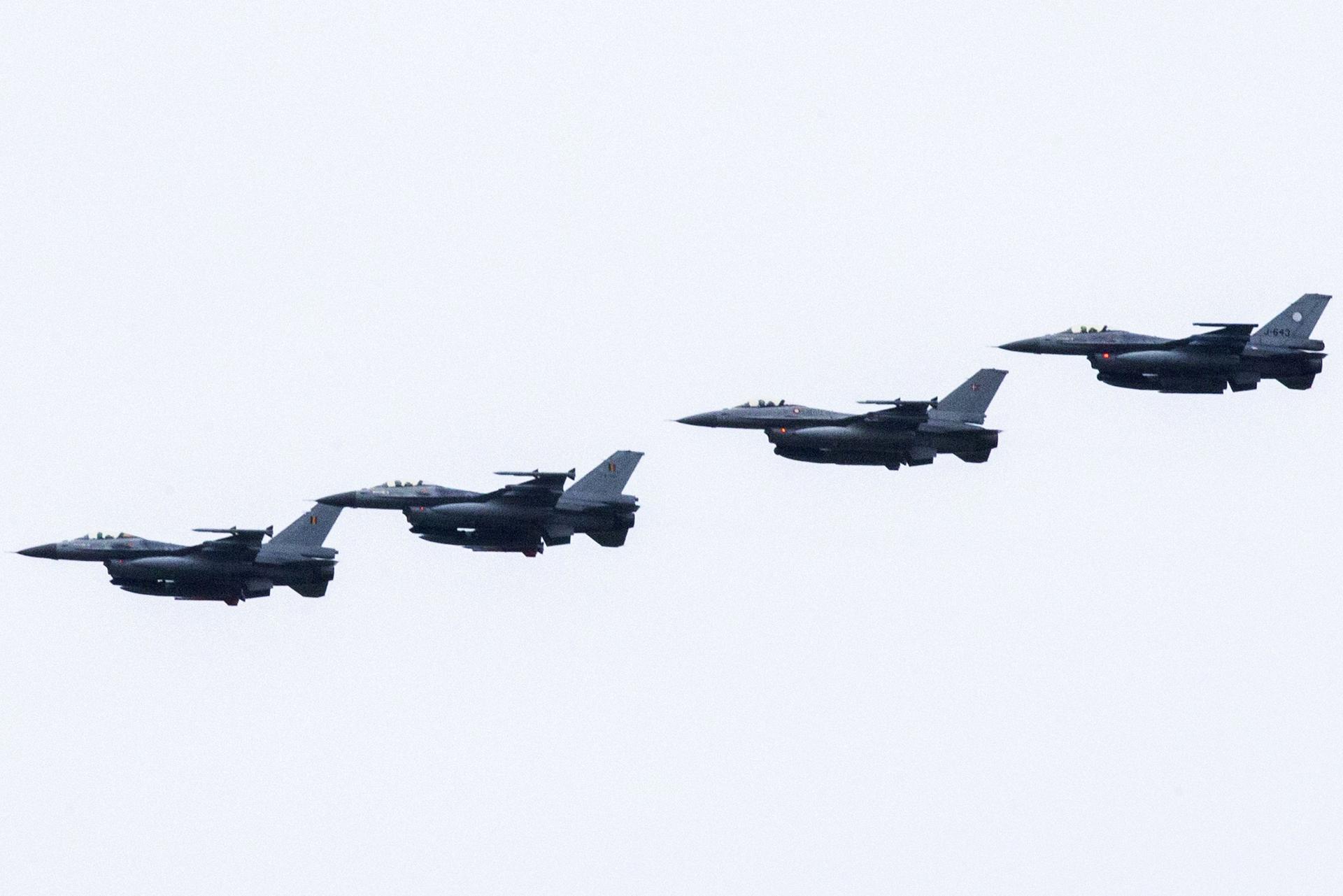No, Russia will not be helping the US strike IS in Syria
Dutch F-16s will join the US-led campaign against IS in Iraq.
MOSCOW, Russia — As President Barack Obama seeks further international support for US-led airstrikes in Syria against Islamist militants, there’s one place he probably shouldn’t bother looking.
Despite Russia’s loudly public condemnation of international terrorism, the Kremlin has refused to back military intervention there, standing firm on a position it’s held since the beginning of the crisis three years ago.
Back then, Russian officials warned about the potential blowback of arming Syrian rebel groups. Now, it seems, they’re basking in their own foresight.
“It’s necessary to fight these people with all possible strength,” said Foreign Minister Sergei Lavrov in a televised interview this week. “But why didn’t the Americans see this threat earlier?”
Before Russia’s annexation of Crimea thrust Moscow and Washington into a Cold War-style standoff, the Syrian issue was one of the leading disagreements between the two countries.
Month after month, the narrative dragged on: American officials touted the urgency of disabling Bashar al-Assad’s regime while their Russian counterparts retorted that no country had the right to stir up a rebellion and topple a foreign leader.
Little has changed even as militants from the Islamic State group have brazenly seized swaths of Syria and Iraq and shocked the world with its high-profile executions of foreign citizens.
Nevertheless, the bombing of Assad’s extremist foes has put the Kremlin in a more delicate situation, at least in terms of rhetoric.
Vitaly Naumkin, director of the Institute for Oriental Studies at the Russian Academy of Sciences, says Moscow is expressing “cautious solidarity” with Washington instead of contributing to a joint effort.
Russia is insisting Washington coordinate its strikes with Assad, something Obama has so far refused to do. Moscow has also voiced concerns that the US assault would hit government forces.
Without direct approval from what Moscow has repeatedly insisted is the sole legitimate authority in Syria, Washington can expect little cooperation.
“The most that can be expected is low-profile involvement in countering IS, primarily by assisting the governments of Iraq and Syria,” Naumkin wrote in a column on Thursday for Al Monitor.
At first glance, Russia may have reasons to contribute to a deeper anti-terror effort in Syria.
It has struggled for years to put down its own simmering Islamic insurgency in the predominantly Muslim North Caucasus region.
IS militants personally threatened President Vladimir Putin this month in a video address in which they vowed to “liberate” Chechnya — the site of two bloody separatist wars — and the greater Caucasus.
However, Russia’s homegrown militant movement, whose nerve center is in the eastern Dagestan region of the Caucasus, has failed to stage any meaningful attacks in recent months.
The peaceful conclusion of last winter’s Olympic games in Sochi — only 300 miles west of Dagestan — suggested that Islamist militants have lost a significant amount of steam, especially after the reported death of their longtime leader earlier this year.
On Friday, Lavrov, the foreign minister, publicly extended Russia’s support to the Iraqi government in that country’s fight against militants, but it remained unclear exactly how and to what extent.
Earlier this week, President Vladimir Putin’s spokesman told Russian news agencies the leader had discussed with his Security Council potentially cooperating with the international fight against IS — but within “the framework of international law.”
More from GlobalPost: Ukraine’s conflict is shaping a new national identity
Still, most experts agree that Moscow can be nudged into action in Syria only if its own interests are directly affected.
Yevgeny Satanovsky, head of the independent Institute of Middle Eastern Studies in Moscow, says the Kremlin’s refusal to join a US-led coalition is a “question of realism.”
Like many here who criticize American intervention as democracy promotion at gunpoint, he believes Washington’s mission is an exercise in futility.
“It’s impossible to export their Western democracy,” he said. “It’s only possible to ruin everything, and then on this ruined society to have something which now, in the [form of the] Islamic State, clearly looks like the Middle Ages.”
Every day, reporters and producers at The World are hard at work bringing you human-centered news from across the globe. But we can’t do it without you. We need your support to ensure we can continue this work for another year.
Make a gift today, and you’ll help us unlock a matching gift of $67,000!
